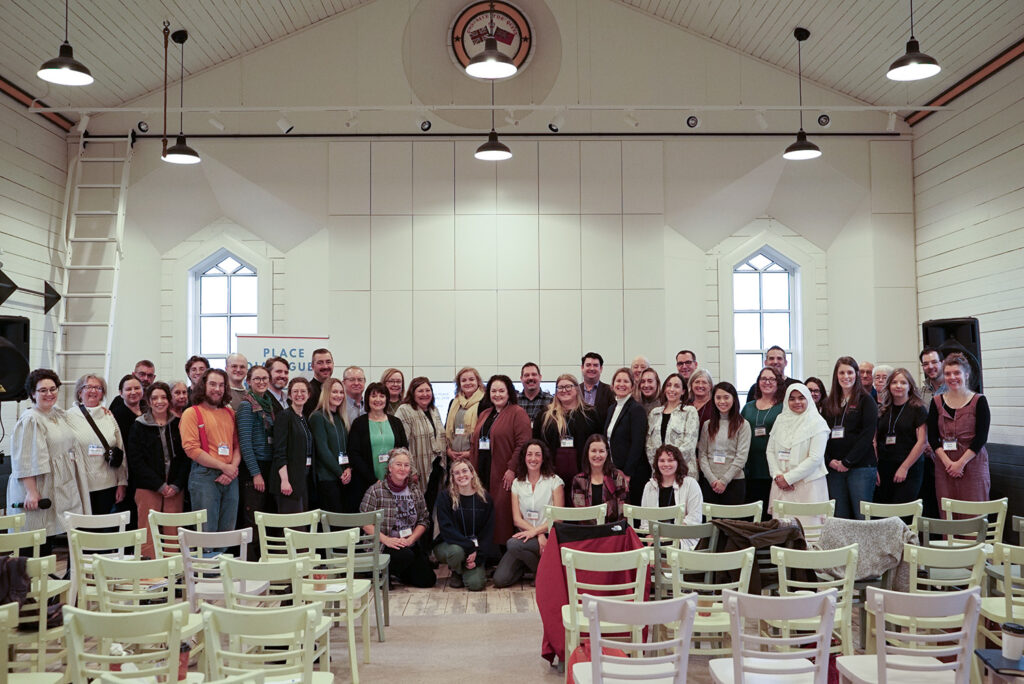
PLACE DIALOGUES 2024: Building Economic Momentum for Resilient Communities
A flourishing society is built upon prosperous communities, and prosperous communities are only possible when they are supported by strong and resilient community economies. So, how do we strengthen community economies? How do we build economic momentum for resilient communities?
This was the focus of the 2024 PLACE Dialogues, co-hosted by Shorefast and Memorial University’s Centre for Social Enterprise on Fogo Island, October 24-26, 2024. Taking place at the Orange Lodge, Shorefast’s Commmunity + Business Hub, the program for the seventh PLACE Dialogues was inspired by Shorefast’s 18-month Community Economies Pilot that brought together five Canadian communities to explore opportunities to better align the pillars of government, business, and community around local economic development.
The PDF program for the 2024 PLACE Dialogues, including participant list and bios, can be found here.
The PLACE Framework: co-created by Shorefast and academic researchers
PLACE stands for: Promoting community leaders; Linking divergent perspectives; Amplifying local capacities; Conveying compelling stories, and Engaging ‘both/and’ thinking. These signify five key principles important to conducting community development work. The framework emerged from a SSHRC-funded research project led by Dr. Natalie Slawinski on Shorefast’s place-based approach to social enterprise on Fogo Island.
The first PLACE Dialogues was held on Fogo Island in November 2018. Conceived as a knowledge-sharing component of the SSHRC-funded research project, the Dialogues convening model sought to gather community champions and leaders from across Newfoundland and Labrador.
The initial 2018 workshop successfully generated new connections between community development professionals working in business, government, and philanthropy. Before the 2018 gathering ended, one of the participants offered to host a second workshop the following year in a different rural community. Since then, the Dialogues have been hosted in Petty Harbour, online during the pandemic, in Norris Point, and in St. Anthony.
This year, the Dialogues returned to their place of origin for the first time under the theme Building Economic Momentum for Resilient Communities. Entrepreneurs co-mingled with community development peers working in the government and non-profit sectors as invited participants joined the workshop from diverse regions and backgrounds. The majority of participants live and work in Newfoundland and Labrador, and three participants with complimentary experience and skillsets joined from Vancouver Island in British Columbia. The PLACE Dialogues intentionally gather diversity and interdisciplinarity, because the challenges local places face in strengthening local economies take a multi-pronged, multi-sectoral approach.
When coordinated action across each critical pillar of community, government, and business work together to build businesses, spark innovation, and solve for social change, this accumulates into the action and influence needed to generate economic momentum that builds resilient communities. In coming together to discuss common challenges from the perspective of their fellow actors, community practitioners are able to uncover gaps in understanding and resources and work towards more effective solutions.
The 2024 Dialogues program was organized around three main topical areas that were identified in Shorefast’s Community Economies Pilot as key leverage points for strengthening community economies.
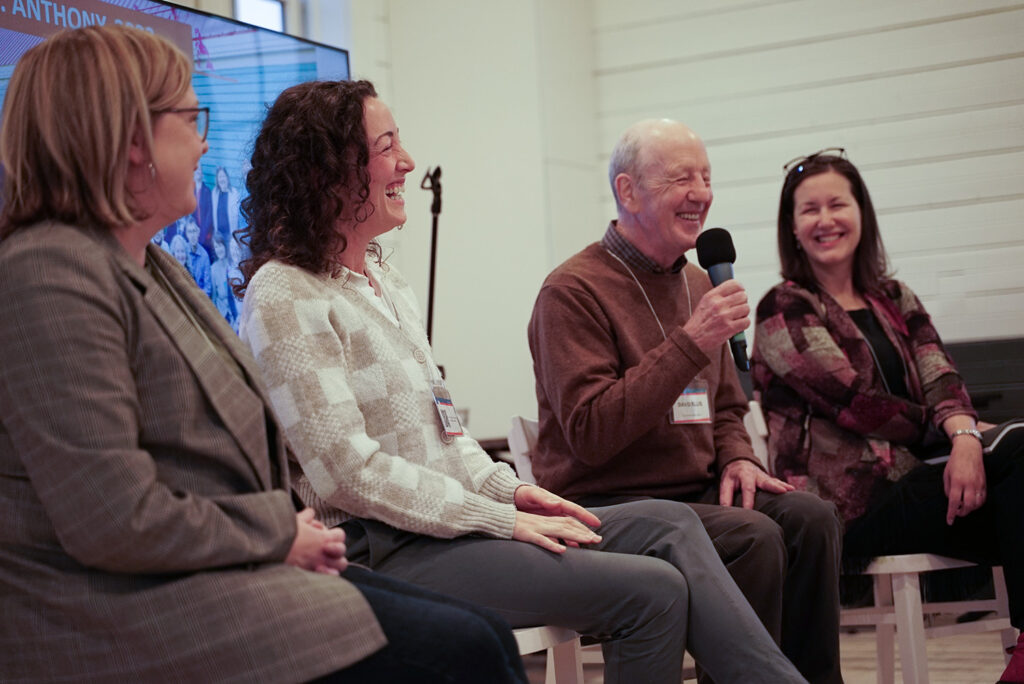
Key Idea 1: Attracting and Retaining Financial Capital
The first panel of the 2024 Dialogues focused on Attracting and Retaining Financial Capital. The panel explored challenges such as the availability of funding resources, how to connect with and understand local needs to encourage uptake and engagement, and how to sustain a healthy system of local purchasing and re-investment. The panel also discussed the importance of local ownership and succession planning to ensure capital is retained in the community for future generations.
One panellist spoke at length about the challenge they faced in attracting initial start-up capital for their social enterprise. For this entrepreneur, choosing direction meant both opening and closing doors – including initial launch decisions like the choice of operating structure. They sought advice from those in the room, asking, “how can entrepreneurs put themselves in a position to succeed in our province?”
The question period revealed many robust suggestions and expressions of support. With regards to financial capital, participants in the room advised ensuring entrepreneurs leverage multiple types of funding that can work for their project, and patchworking opportunities (loans, financing, partnerships, and/or government funding) to get started.
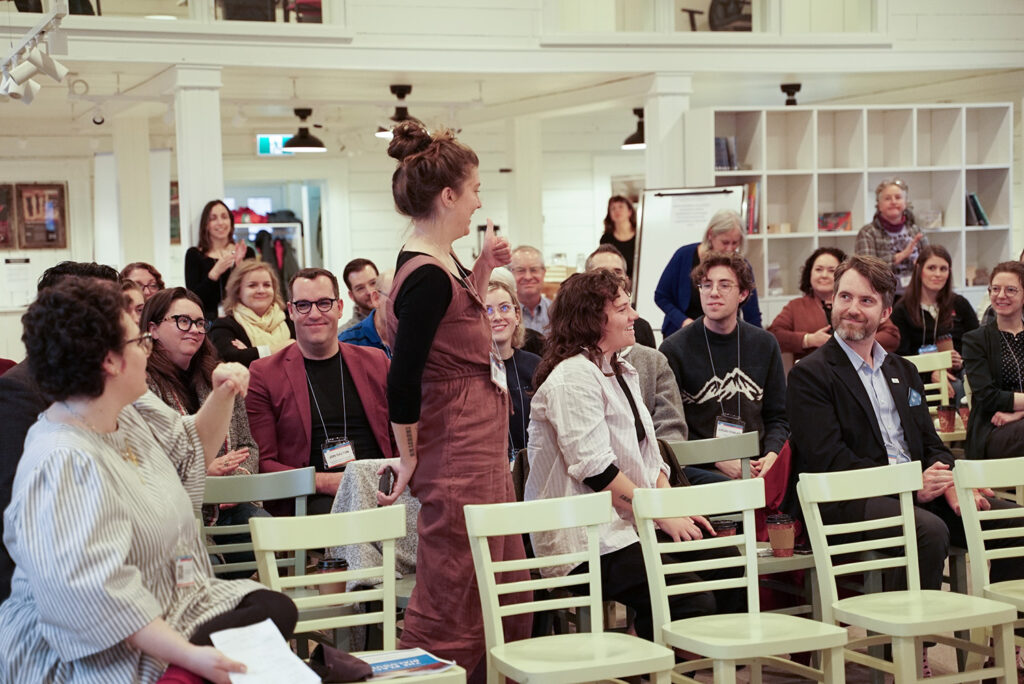
Key Idea 2: Building Local Entrepreneurial Capacity
The second panel explored entrepreneurial energy in Newfoundland and Labrador. All panellists were current or former entrepreneurs who have built businesses and social enterprises based on place-specific assets and industries. All the ventures represented demonstrate a knack for identifying emerging trends and building businesses or projects that tap into key markets and opportunities while retaining community-centred values.
The stories shared by the panellists were heartening and inspirational; the energizing effect of sharing successes is a key outcome of the Dialogues. But equally important is the identification of challenges and gaps in resources. One panellist shared that their business had benefitted from mentorship opportunities that arose due to serendipitous referrals, but there was agreement in the room that resources and mentorship opportunities must be strategically marketed/communicated to reach the entrepreneurs they intend to serve. Several panellists noted that their businesses could benefit from their communities developing assets or policies that are outside of their entrepreneurial scope but relevant (even essential) to their businesses. Again, the benefits of cross-sectoral collaboration were reinforced.
The supportive exchange, knowledge transfer, and peer-to-peer conversation and problem-solving demonstrated on both panels are key to the Dialogues convening model. With few similar convening opportunities for community development practitioners in the province, and fewer still focused on rural regions, PLACE Dialogues participants often note that the networking and conversational platform provided by the Dialogues are invaluable.
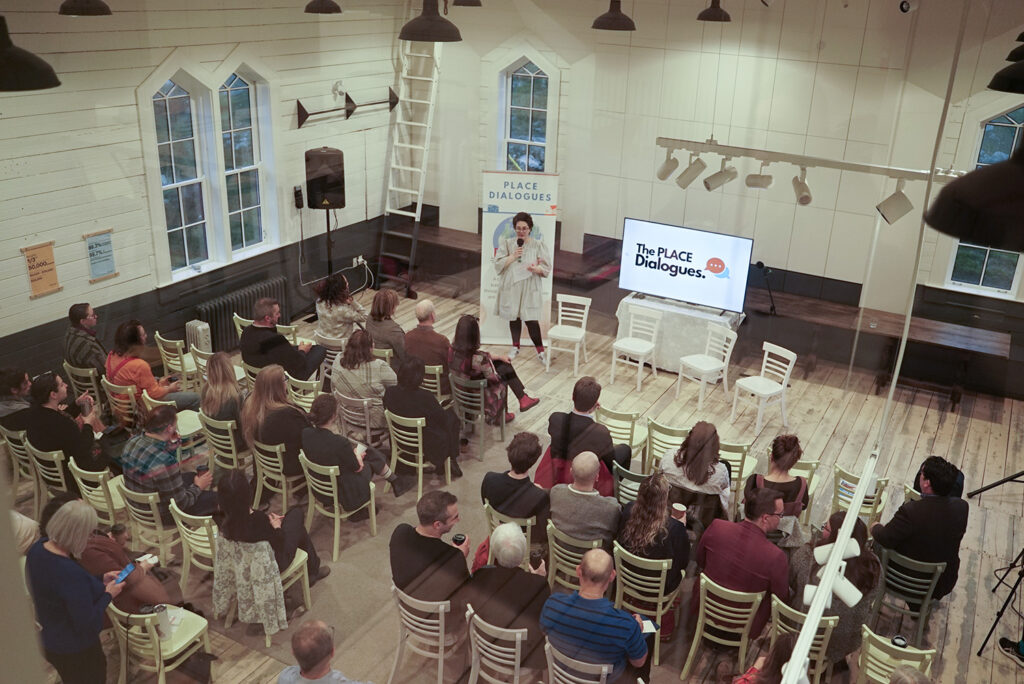
Key idea 3: Architectures for Collaboration
Wrapping up the discussion and exchange portion of the Dialogues, panellists and participants moved into practice mode for breakout sessions that offered the opportunity to learn more about Shorefast and the Fogo Island Co-operative Society. Formed in 1967, the Fogo Island Co-operative Society is the Island’s largest employer and operates three processing plants. Participants were able to get an insiders’ tour of the Co-op’s Fogo plant and meet some of the team. Other groups visited Shorefast’s Punt Premises to learn more about the charity’s programming and community businesses, including Fogo Island Inn. Dialogues practitioners could also choose their own adventure and visit a variety of local shops and businesses, including artisan makers and Living Water Hydroponic Farm.
Ending the day with more inspiration, participants visited two exhibitions at Fogo Island Inn and JK Contemporary and considered the role contemporary art can play in community economic development. Through art, artists and communities can tie into global networks and carve out new and exciting opportunities for belonging.
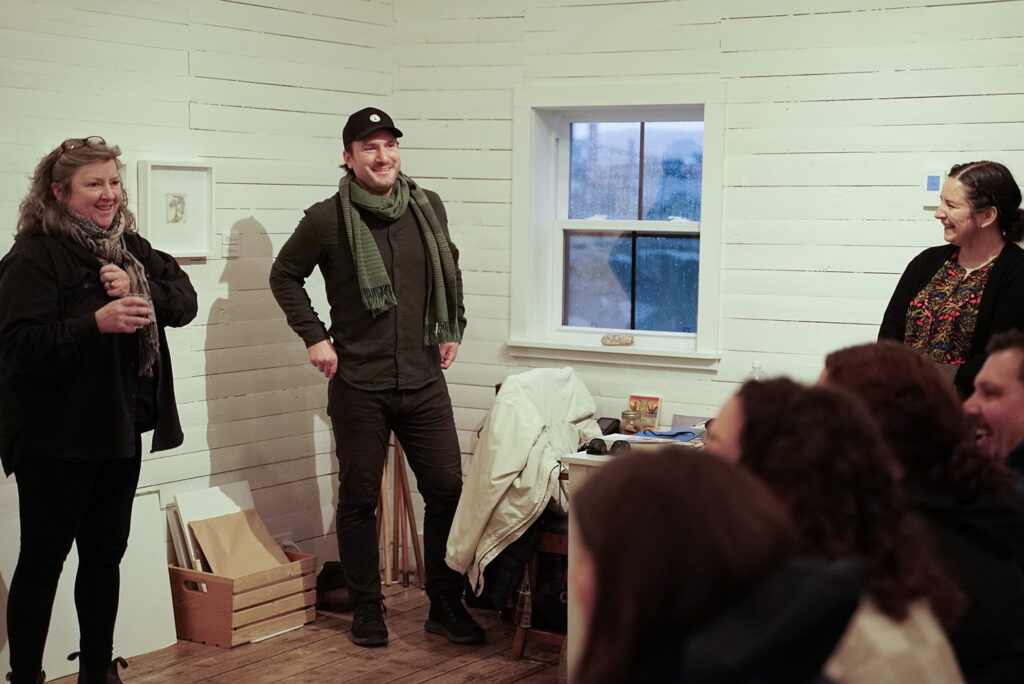
Inspiring More Places: The Shorefast Network for Place-Based Economies
To learn more about the PLACE Dialogues and the PLACE Framework, visit the Memorial University Centre for Social Enterprise website here. In 2023, a new book titled Revitalizing PLACE through Social Enterprise was released, co-written by academics and community practitioners. It is available via Memorial University Press as a hard copy and as an open-source PDF.
The PLACE Dialogues and Framework are part of the emerging curriculum for the Shorefast Network for Place-Based Economies: a national initiative to catalyse the holistic development of local economies, big and small.
Sign up for our newsletter to stay informed. Together, we can reimagine the future of economies—where place, people, and prosperity are interconnected for lasting impact.